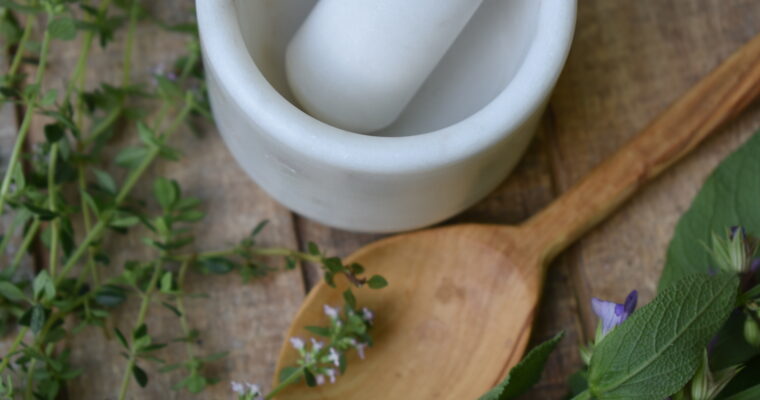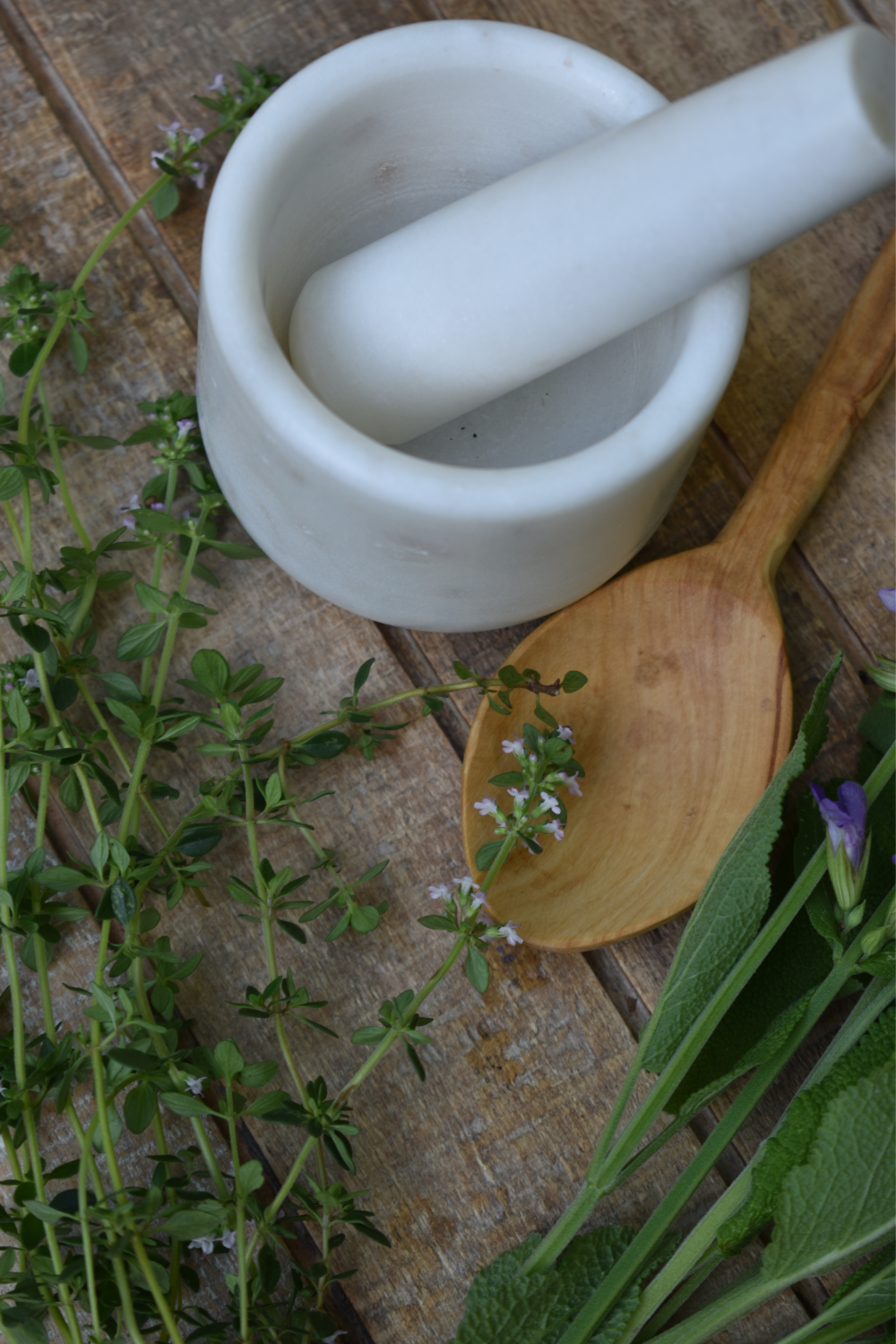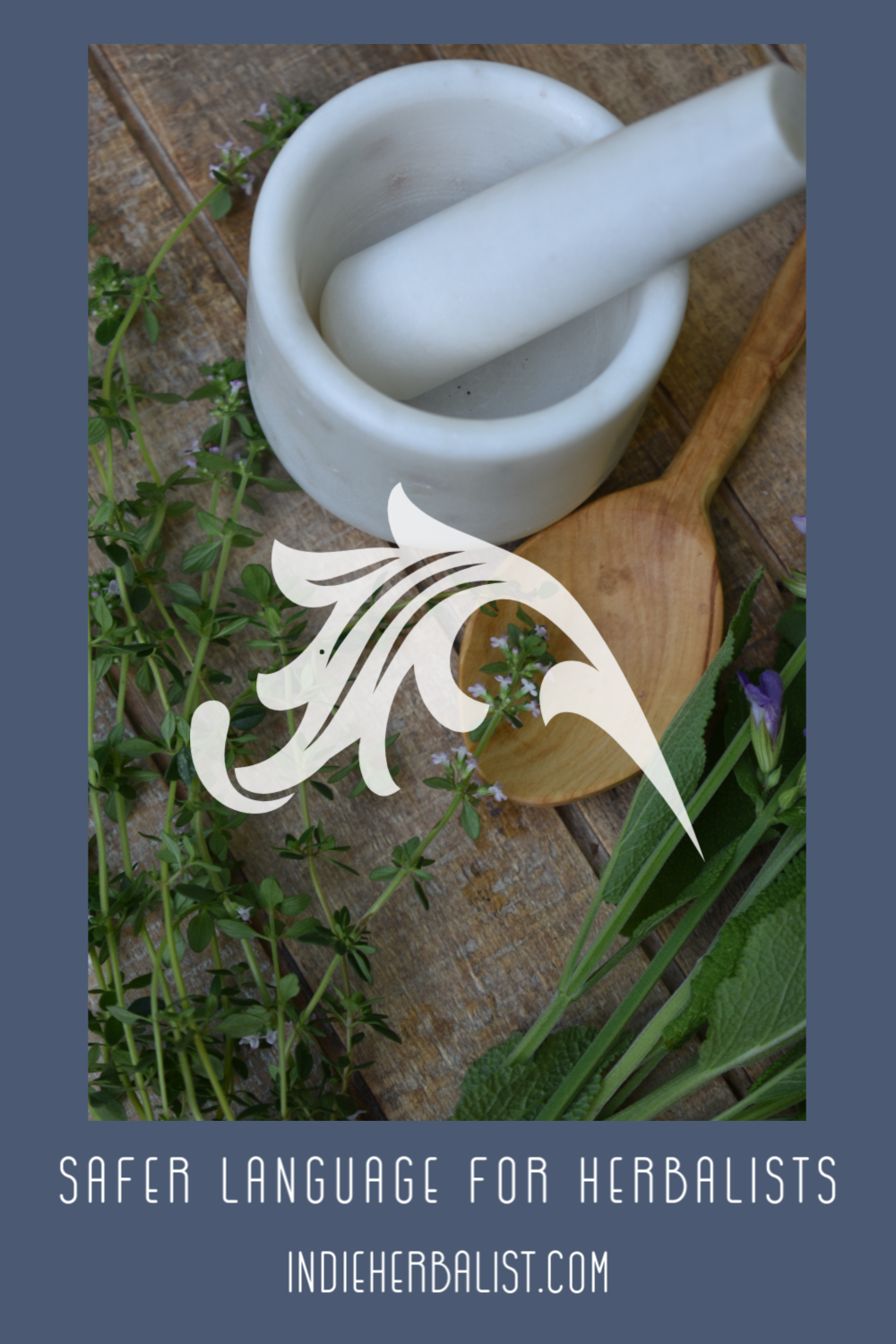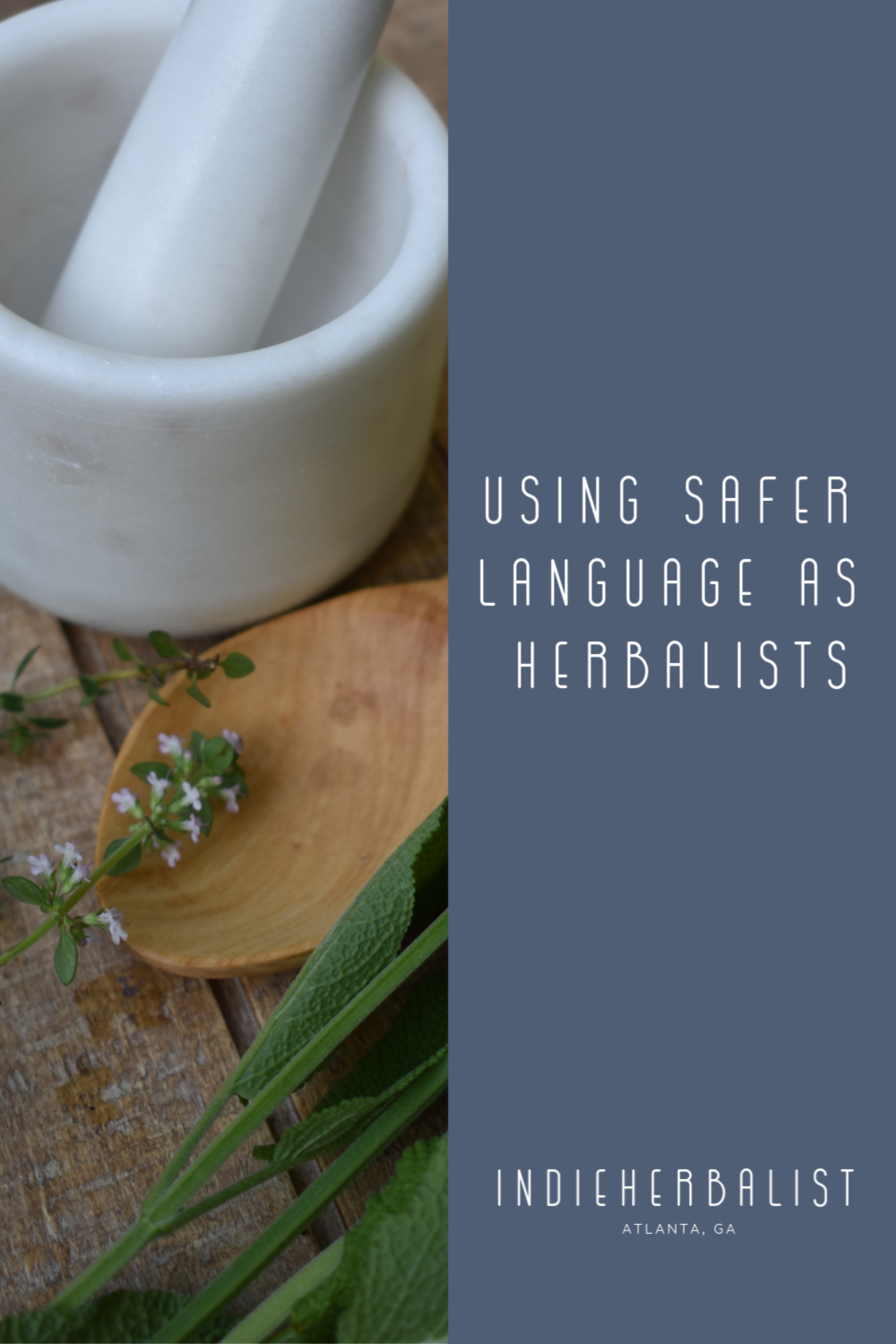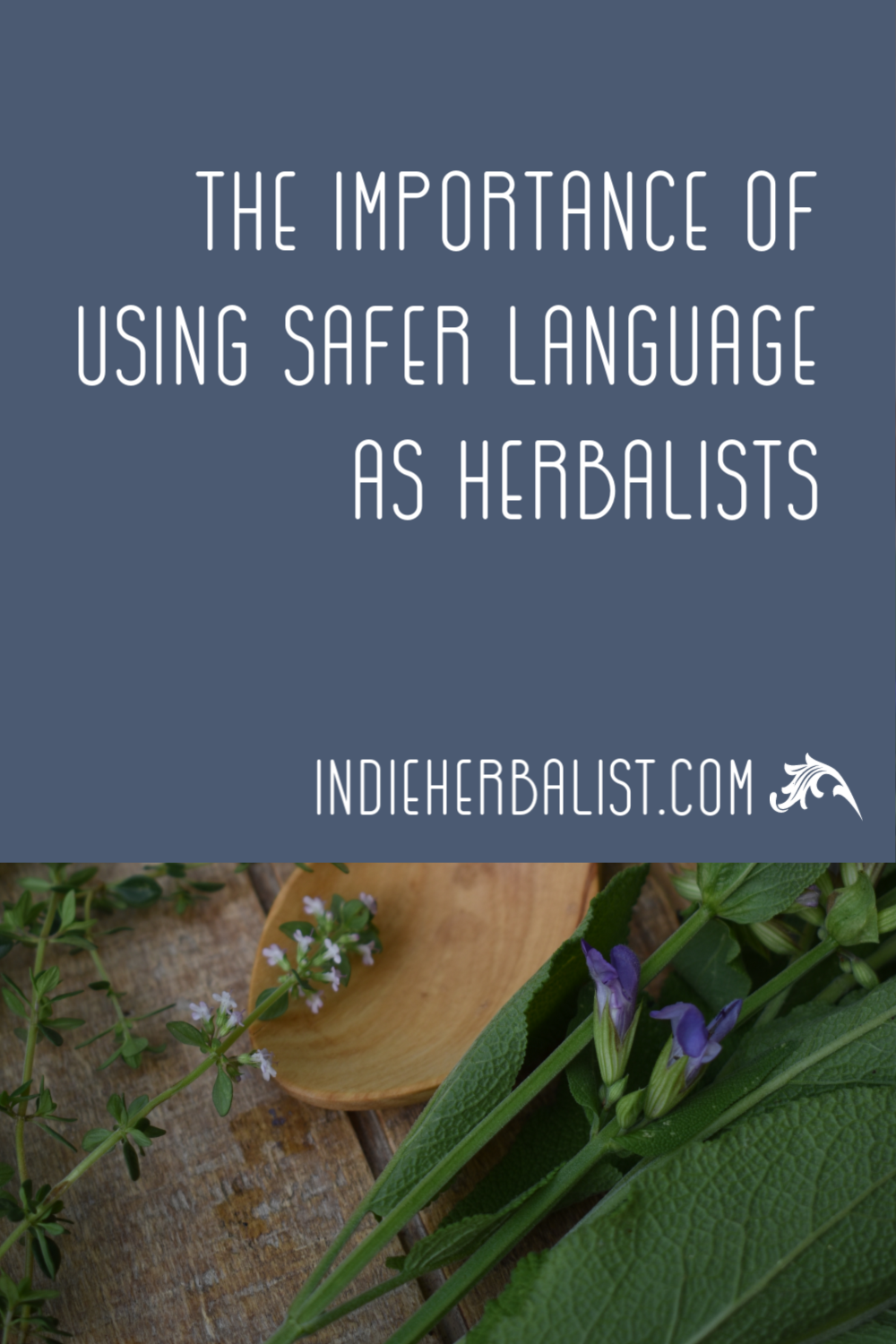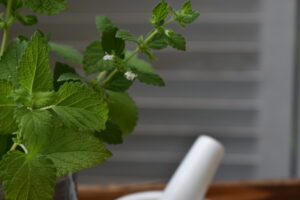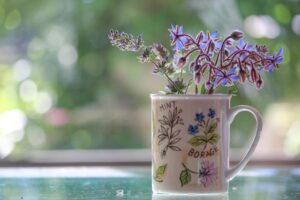Links contained in this post and elsewhere on my website may include affiliate links. When you make a purchase through these links, I earn a commission at no additional cost to you. I only link to products and services that I love - and that I think you will love, too!
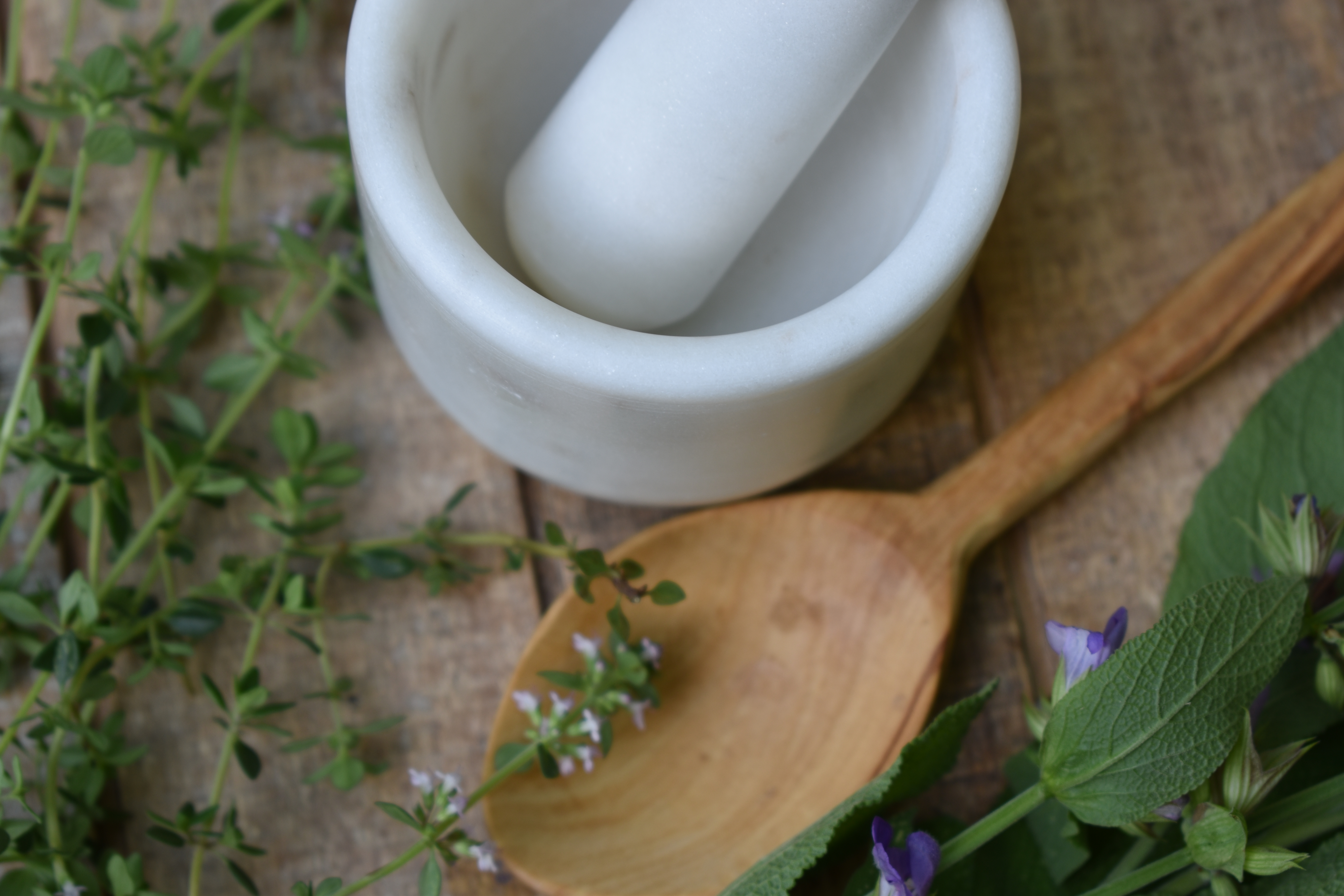
It’s time to talk about using safer herbal language. Why? Well, the coronavirus pandemic has raised awareness of herbalism in a big way. On the one hand, hey – that’s great! I love teaching about herbalism. I think it’s high time more people learn the herbal traditions that are an essential human birthright. Unfortunately, not all of the attention has been good. Mainly because herbalists are suddenly traipsing blissful and unawares waaaay past their scope of practice. Like, way out there.
What do I mean? Overnight, herbalism has taken a sudden left turn into medical territory, complete with all of the medical jargon and drug claims. Hold up! Did you know that certain actions (and the language that goes with them) are reserved for doctors only? Using medical language as an herbalist can get you into hot water (and I don’t mean happy fun hot water like “let’s make tea”).
I can’t speak for herbalists outside of the United States, but there are quite a few considerations for herbalists here. Most of these I know from first hand experience. Health food store clerk was my first real job working with herbs outside of a garden. Luckily for me, the chain was owned by the husband of an MD. So I learned really, really quickly what was ok to say and what wasn’t. It was part of my employee training!
So, PLEASE watch your language. Never in my life have I seen so many herbalists (of every stripe) so quick to diagnose, treat, prevent, and cure a named disease as they have been with the current coronavirus pandemic. And as a fellow herbalist, I have to say it: remember your scope of practice.
It is extremely important to remind the public (and ourselves) that:
- herbalists are not doctors
- we put ourselves at risk of (severe) legal action for practicing medicine without a license if we use medical language
- herbalists don’t need medical language. We have access to an entirely different worldview built on thousands of years of custom (and the language, concepts, and activities that go with it).
- herbs are recognized as dietary supplements, not drugs. So we also need to be careful not to make drug claims.
No Medical Language, Please
As an herbalist, you don’t need to use medical language. Despite the current trend, you absolutely do not need it to sound educated and informed when teaching herbalism.
But it’s not that simple, right? What exactly is medical language, anyway? Unfortunately, there’s no complete list of problematic words. Each state is responsible for defining the scope and practice of medicine within it’s jurisdiction. Your state has laws on the books that reserve certain words and practices for doctors only. Please, do yourself a favor and familiarize with the specifics in your state.
Obviously, I’m not a doctor OR a lawyer, so I can’t give you medical OR legal advice. Check in with a lawyer if you have questions, and especially if you plan to start a blog, open an herbal products business, or see clients.
I haven’t heard of anyone under investigation recently for being an herbalist, but it wasn’t terribly long ago that investigations of schools and herbalists were a thing. It’s much better to be safe than sorry.
As a general rule:
- cure
- treat
- prevent
- medicine
- prescribe
- diagnose
shouldn’t be in your vocabulary. The Rocky Mountain Herbal Institute also has a really thorough article on this topic. I was directed to it as a resource when I started working at the health food store back in – uh, a really long time ago (but it’s still a great resource).
No Pharmaceutical Language, Please
Talking about herbs in the same style as pharmaceuticals is also problematic. Be aware of using drug language, including anything that can be construed as a drug claim. Don’t claim that an herb can relieve symptoms (generally or specifically). Stating that an herb or herbs generally can cure, treat, or relieve a named disease could also be an issue.
Incidentally, that’s also why it’s better not to say “herbal medicine” or refer to herbs as medicines. Use of “remedies” may also be on the no-no list in some jurisdictions.
So what can we say about herbs and their influences? As is true with supplement companies, speaking in terms of structure-function claims is a better alternative. You can talk about ways herbs support the natural, healthy processes and well-being of the human body. General systems within it (such as the digestive system or the nervous system) are also generally considered safer.
Oh, here’s another good one! Be careful of the word apothecary. Surprise! Another example of state variations involves this much loved word. In my state, apothecary can only be used in a business name if the business is a licensed pharmacy.
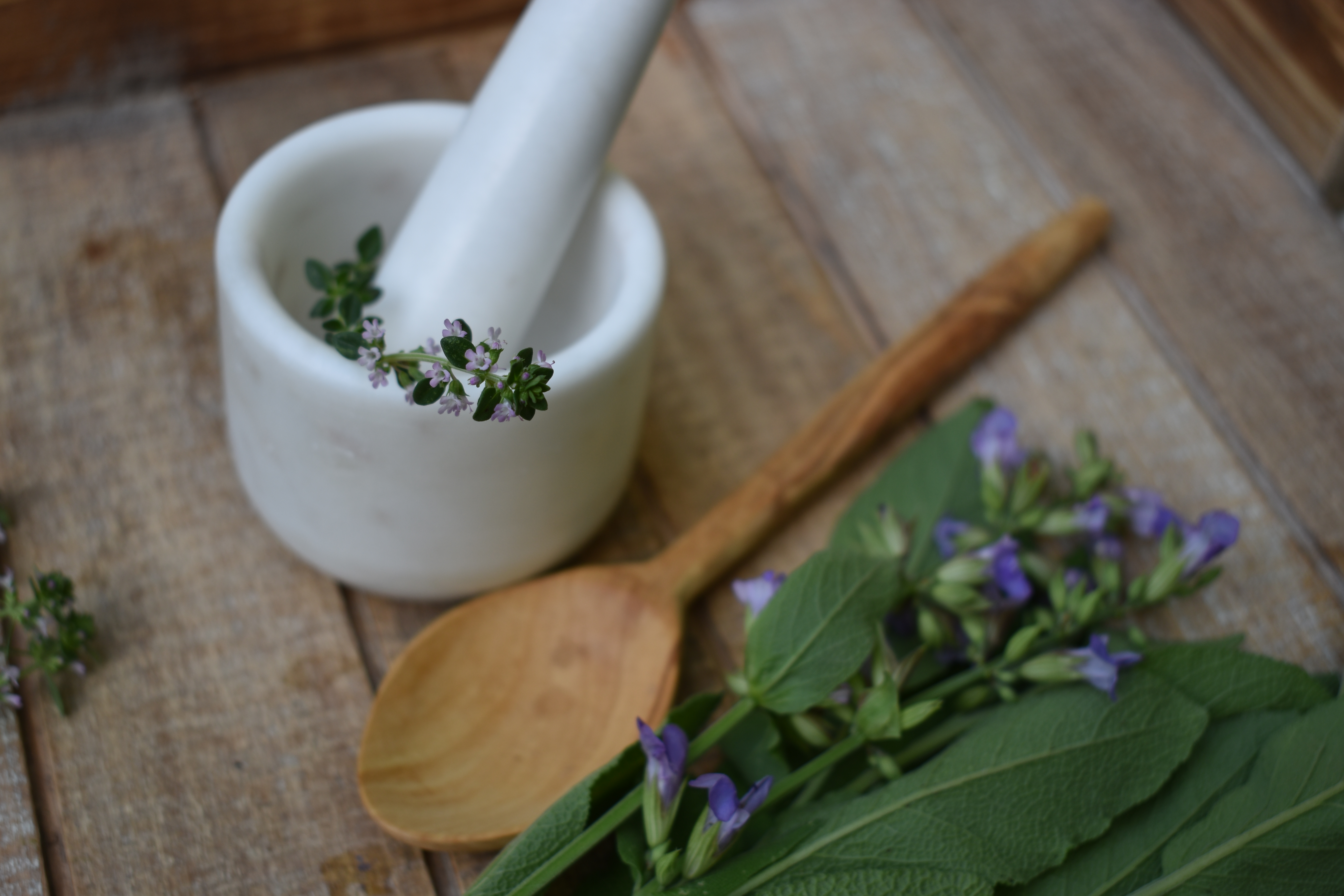
How to Use Safer Herbal Language
So, I’ve mentioned I worked at the health food store, also that our sponsoring physician was incredibly strict about what we were allowed to say. She knew all of the finer details about legal liability and made sure that we had clear directions to follow. Based on my experiences at the health food store, I’ve been taught that it’s safe to describe your personal experiences, reference traditional use, and show and tell. That’s it.
For example, we can argue that “I used this herb when this was happening and then I felt better,” isn’t a medical claim. Neither is, “This is what I like to do when I am experiencing (this general type of situation).”
You can also consider addressing options, such as “If this structure/function issue (not a named disease, remember) were a concern for me, I might consider doing this as an option (and this is why).”
Reference Traditional Use
Furthermore, I love references about traditional use. Invoke the names of those who have gone before! “Culpeper says this about elecampane,” or “Herbalists back to Dioscorides have valued this plant for this use.” Bonus points if you know that sort of trivia- it gives you some pretty good street cred.
Haha, actually -no, most people don’t know Culpepper from Dioscorides from Adam’s house cat. But hey, it’s still an option. “It’s used in Ayurveda or traditional Chinese herbalism for whatever,” is another direction for this.
Just be aware that historical sources aren’t automatically correct because they are reliable. Check with herbalists you know and trust for their favorites. Cross-referencing and critical thinking are your friends!
Inform with Show and Tell
Show and tell can be a bit trickier. This is when you have a relevant resource you can provide as a reference. That’s why most health food stores have a collection of books you can browse even if they don’t have any for sale. They may not legally be allowed to explain something to you, but you’re welcome to look it up for yourself.
This brings me to another trend I’ve noticed. Herbalists are going crazy for studies and scientific literature right now. The problem with that is the peer review process has long been full of funny little loopholes, odd detours, and outright scandal. So those studies aren’t necessarily a good resource. You can listen to The Great Science Publishing Scandal or read Let’s Stop Pretending Peer Review Works to learn more about the potential pitfalls of worshiping blindly at the Altar of Modern Science.
Don’t get me wrong. Science is extremely important. Reading widely about botany, anatomy and physiology, immunology, phytochemistry- the whole works- gives me a depth of knowledge that I draw on constantly to inform my opinions about herbalism. Like historical references, though, you should be cross-referencing and thinking critically about the information you find. Don’t assume that because it sounds technical it’s true.
How you present yourself counts
As an herbalist, I’m not comfortable directing most people to scientific literature. I occasionally reference studies when I am writing articles. I also have a friend who is an epidemiologist and we talk shop sometimes. For most people, though, scientific literature automatically falls more within the realm of doctors and medical researchers. It could potentially blur that line where someone might think you are an Official Expert (TM) when you’re really Just an Herbalist. Hey, that’s not me, thanks! Just a little ol’ herbalist here, mindin’ my own business.
Besides, that type of information isn’t easy reading. Even if you know how to spot faulty logic, study shortcomings, researcher prejudice, or funding mischief, you still need to think critically about what you’re reading. Does it make you seem erudite to reference scientific literature? Maybe. Or, it might only make your client confused or scared because it sounds ominous and technical.
However, I’m much more comfortable citing books. This is information that most people can readily obtain and verify on their own, so sharing a resource from a book can be seen as a routine part of being an herb teacher or herbal educator. I’m just pointing out accessible resources. Like ya do. When you’re an herbalist.
Go Forth, and Talk Safely
I’m going to stand by my traditional roots and prior training on this one. If you’re going to be an herbalist, that means you need to learn to talk like one! It doesn’t mean you have to water it down, it doesn’t mean you have to give yourself a gag order. You don’t need to use medical language to be well-reasoned and thorough. Just be mindful of the words you use and how you present yourself and you’ll do fine!
All the best,
Agatha
